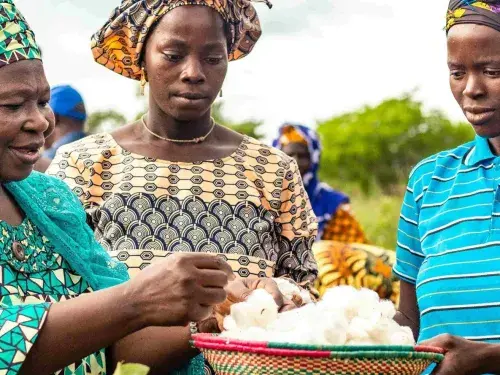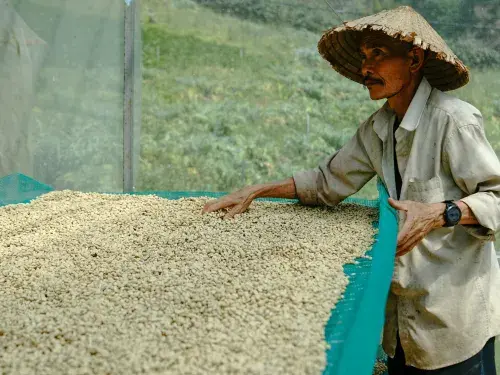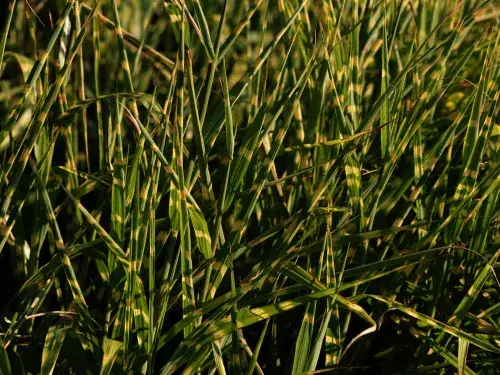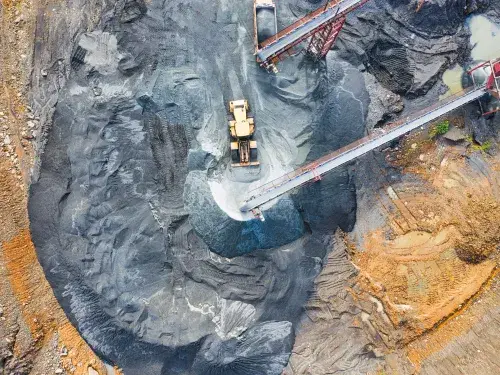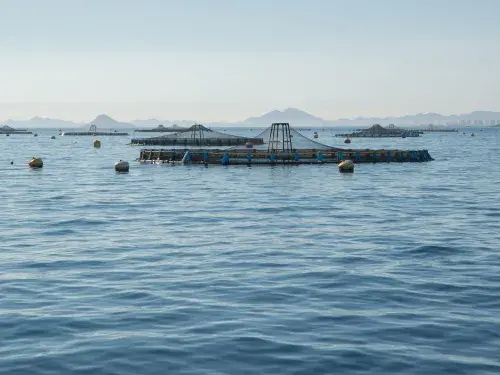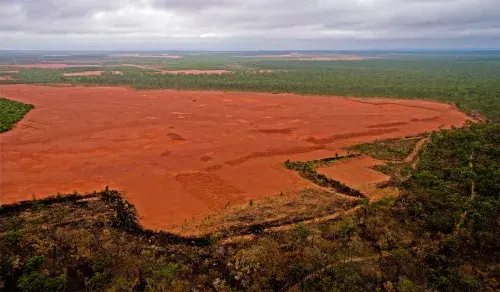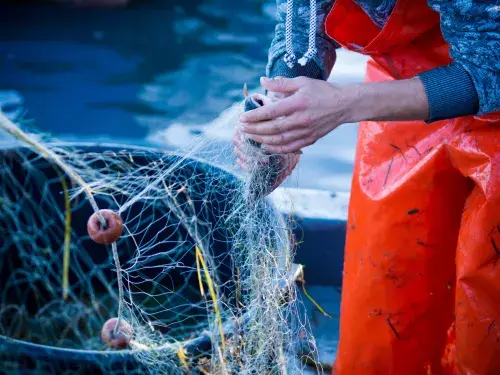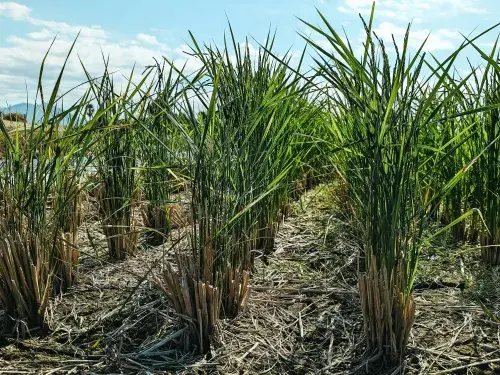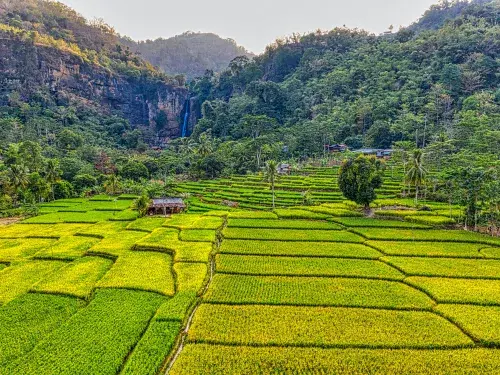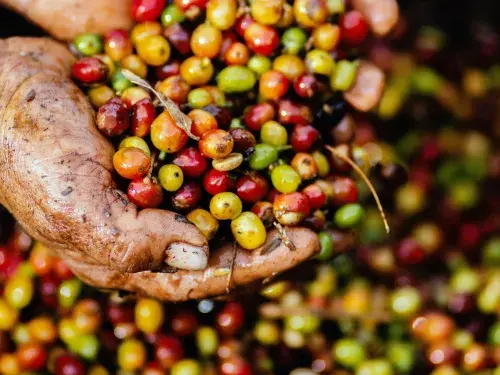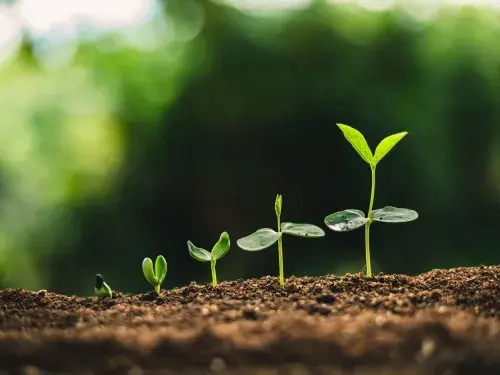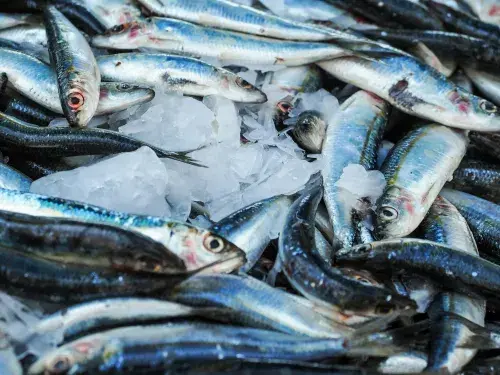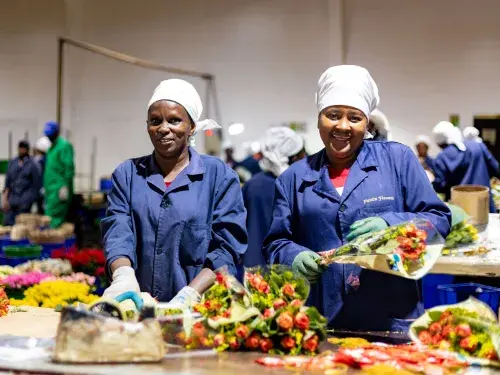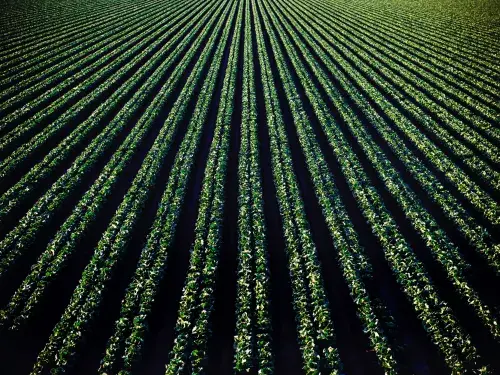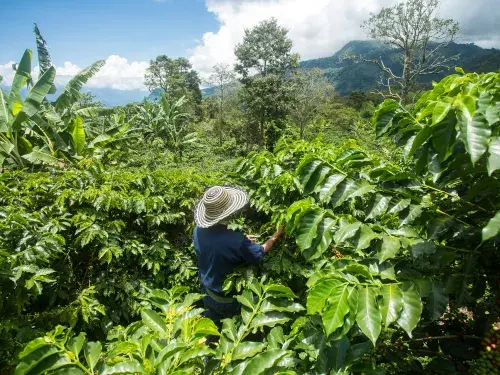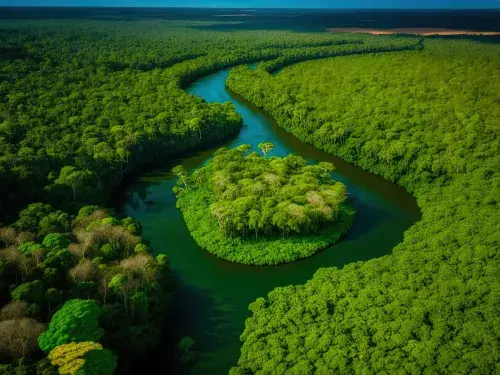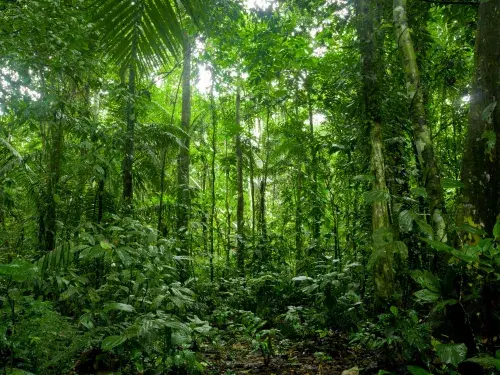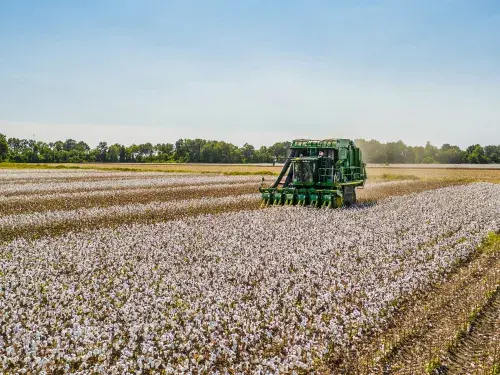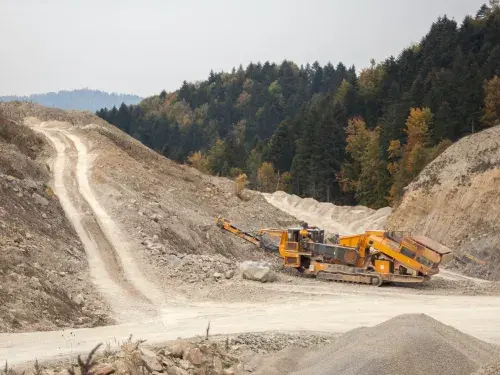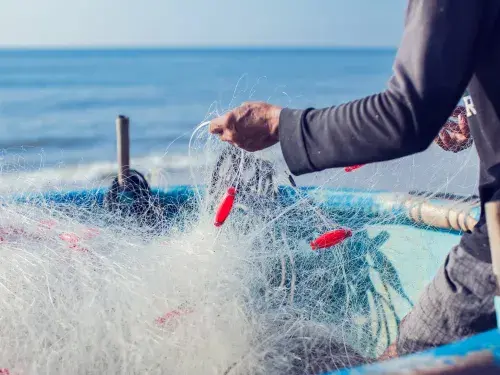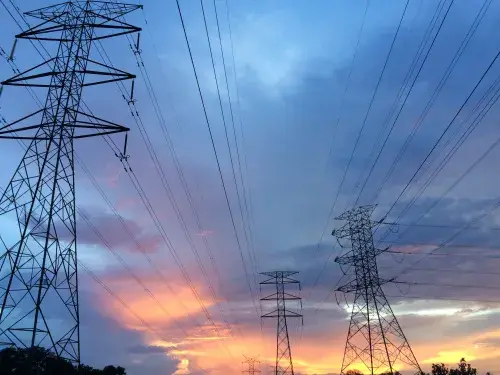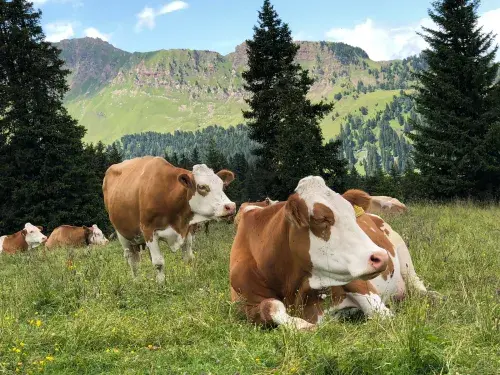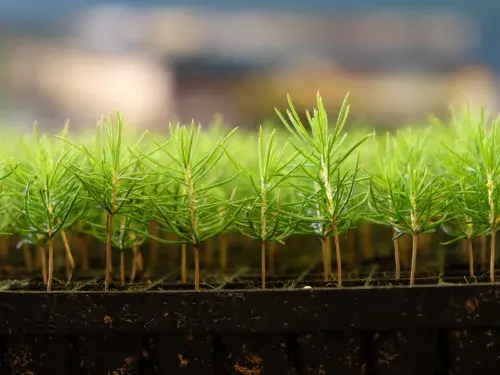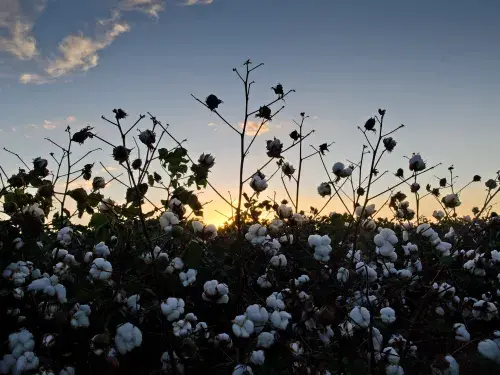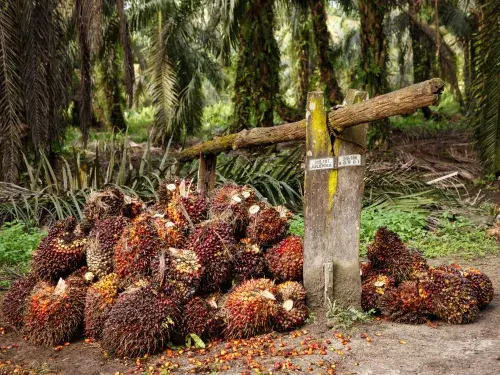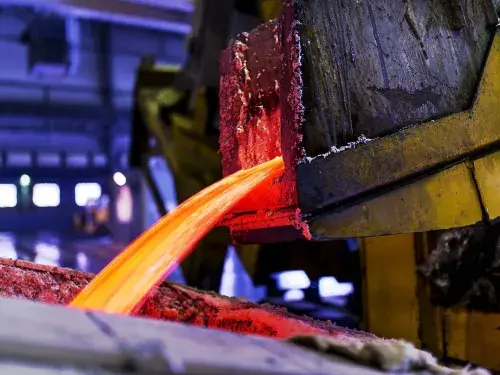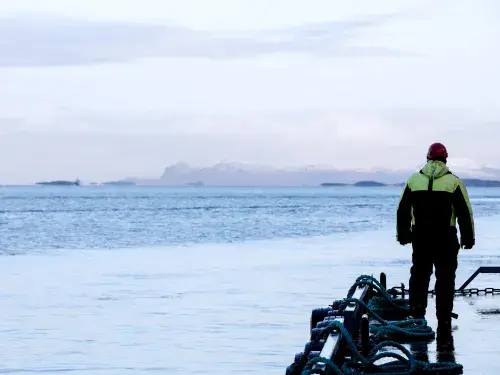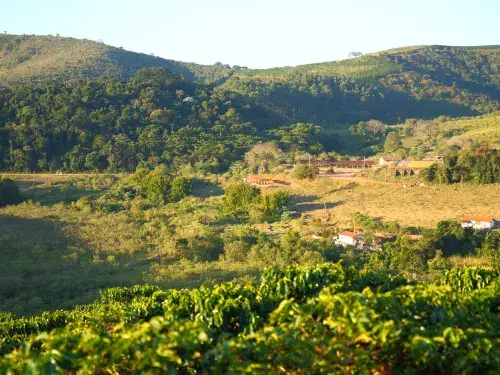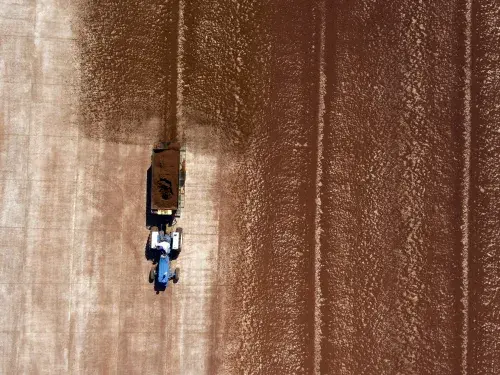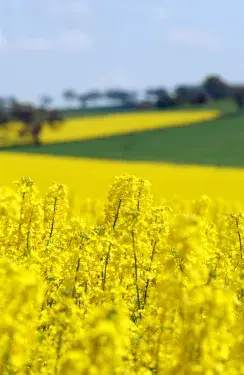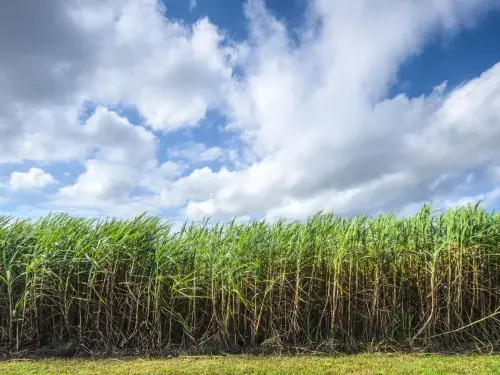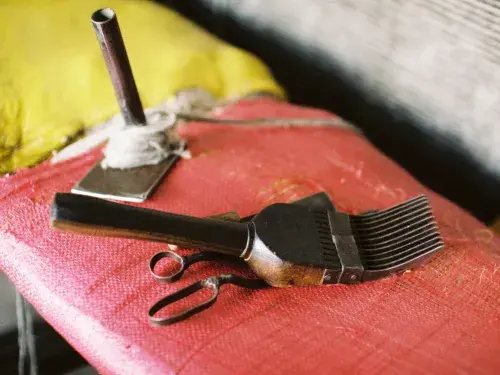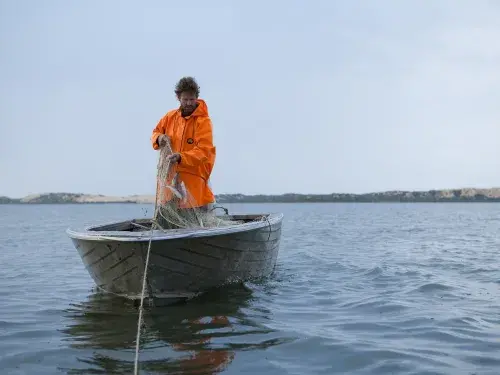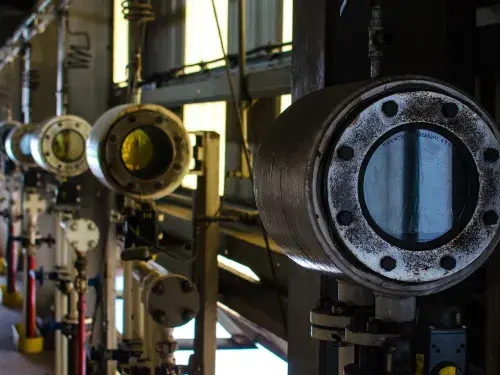Innovations Fund project portfolio
The Innovations Fund supports projects that explore and test innovative approaches to strengthening the impact and effectiveness of sustainability systems. Explore these projects below, and access available outputs and learnings.
Community-led verification mechanisms for smallholder producer groups
Sustainable Agriculture Network aim to create a more transparent and inclusive approach to sustainable verification by integrating community-driven monitoring into certification processes (February 2025 – August 2026).
ReACT – Resilience through Collective Action, Sustainable Healthcare Access for Cotton Smallholder Farmers
This initiative led by Better Cotton (January 2025 – December 2026) will develop a sustainable health program to ensure farmers can get access to essential health services without financial strain.
CARE: Collective Action for Recycling and Empowerment
Waste pickers in developing countries play a key role in the circular economy. Aluminium Stewardship Initiative are fostering collective action to integrate them into formal markets (January 2025 - January...
Creating partnerships for research and testing impact verification frameworks in Indigenous and traditional communities
Indigenous and Traditional Communities play a vital role in protecting the environment. The Forest Stewardship Council are exploring effective methods for assessing socio-cultural impact (January 2025 – December 2025).
Piloting data ownership with cocoa cooperatives in Ghana
As regulation evolves, data becomes a critical asset for smallholder farmers. Fairtrade International are piloting a business model for data ownership in the cocoa sector (March 2025 – June 2026).
Sustainable traceability for empowered producers
Fairtrade International are creating a simple, scalable traceability system in alignment with regulatory demands that prioritises producer data ownership (November 2024 – October 2026).
Impact incentive market signal research
Working closely with farmers, in this project Roundtable on Sustainable Biomaterials aim to show how sustainable practices can translate into better incomes for smallholders (November 2024 – October 2026).
Herder connect: empowering animal fibre producers through digital tools
By providing accessible tools and better resources, the Sustainable Fibre Alliance aim to empower Mongolian herders to boost their economic stability, to enhance community resilience (November 2024 – November 2026).
Botanicals premiums for local livelihoods
By introducing premium payments linked to sustainable practices, UEBT aims to encourage sustainable practices and improve incomes for small producers, at scale (November 2024 – October 2026).
Geospatial information technology for outcome verification
By introducing geospatial technology at the field level, Better Cotton aims to enhance verification and visibility of sustainable practices, for smallholder market access and resilience (November 2024 to October 2026).
Exploring the role of standards in driving a responsible transition in steel and mining
A collaboration between Responsible Steel and Initiative for Responsible Mining Assurance, between August 2024 to August 2025, explores the role of sustainability systems in a socially responsible net-zero transition of...
Ensuring indigenous peoples’ rights to FPIC in assurance for transition minerals
This project by Initiative for Responsible Mining Assurance aims to improve standard-setting and auditing tools to ensure that they are rights-based, between August 2024 - July 2026.
Improving wage transparency in cotton through farm-level data collection
Better Cotton led a project (July 2024 - March 2025) to improve wage transparency in cotton production to benefit farm workers.
Improving worker engagement mechanisms in fishing, aquaculture and seafood processing
Monterey Bay Aquarium are leading a project (August 2024 - July 2026) to explore worker engagement systems in the seafood sector to identify insights and strategies to promote worker's voices...
Changing power dynamics in aquaculture through community-based environmental monitoring
The Aquaculture Stewardship Council are co-developing tools for environmental monitoring, to empower communities affected by aquaculture operations (August 2024 - August 2026).
Including Indigenous Peoples and Local Communities in mine rehabilitation through FPIC
Aluminium Stewardship Initiative aim to empower Indigenous Peoples and Local Communities to contribute to mine closure practices and outcomes (September 2024 - February 2026).
Enhancing social auditing in coffee supply chains
To enhance the detection and management of human rights risks in coffee, 4C are developing a social auditing training programme (August 2024 – July 2026).
Supporting smallholder inclusion in sustainable palm oil supply chains
Roundtable on Sustainable Palm Oil are leading a project (June 2024 - November 2025) to support independent smallholder inclusion in sustainable palm oil supply chains by improving understanding of factors...
Evaluating the environmental impacts of Marin Trust activities
Marin Trust sought to improve its effectiveness, address barriers and demonstrate the difference it makes. Between September 2023 - February 2024 they reviewed the outcomes and impact of their activities.
Advancing net zero in the jewellery and watch industry
Responsible Jewellery Council are leading a project (April 2024 - April 2025) to assess the greenhouse gas emissions (GHG) of the industry through a life cycle assessment of a jewellery...
Promoting regenerative agriculture practices by soy producers
Round Table on Responsible Soy Association led a project (April 2024 - January 2025) to develop a Regenerative Incentives System (RIS) that will overcome the low adoption rates of regenerative...
Developing a climate action toolkit for sugarcane and cotton producers
Bonsucro is leading a project (April 2024 - April 2026) to develop a learning platform to share climate action experience and to enable the adaptation of processes and tools for...
Building a roadmap towards decarbonizing the copper sector
The Copper Mark is leading a project (May 2024 - May 2025) to develop a Sector Decarbonization Approach (SDA) roadmap for copper, covering mining, smelting, refining and possible semi-fabricated products.
Developing an interoperable book and claim registry ecosystem
The Roundtable on Sustainable Biomaterials are leading a project (April 2024 - November 2025) to develop a book and claim registry ecosystem enabling interoperability between the independent registry operators joining...
Developing a low carbon assurance module to validate greenhouse gas emission reductions in rice
Sustainable Rice Platform is leading a project (April 2024 - October 2025) to develop and launch a new ‘Low-Carbon’ Assurance Module (LCAM) that will extend the scope of the Sustainable...
Testing novel approaches to strengthen responsible sourcing due diligence
The Union for Ethical BioTrade is leading a project (April 2024 - March 2026) to test novel assessment and verification approaches and data platforms to support local companies, farmers and...
Forming an alliance of global sustainability organisations to share risk information
Sustainable Biomass Program are working in partnership to enhance the availability of credible, high-quality risk data covering diverse commodities, sectors, and geographies (January 2024-December 2025).
Developing a sustainability performance dashboard for the finance sector
Aquaculture Stewardship Council are leading a project (April 2024 to April 2026) to create and pilot a dashboard for Environmental, Social and Governance (ESG) performance reporting by providing sustainability metrics...
Strengthening remediation solutions to child labour
GoodWeave are leading a project (April 2024 to November 2025) to explore ways to improve the remediation options offered to adolescent workers (under the age of 18 years old) by...
Facilitating rightsholder dialogue in human rights and environmental due diligence
Fairtrade International are piloting an approach from January 2024-December 2025, to strengthen direct, meaningful dialogue between brands or retailers with rightsholder groups, facilitated by a sustainability scheme.
Developing climate-related traceability systems for complex value chains
Through this project (January 2024-December 2025), FSC will develop best practices and pilot new procedures for building in the traceability of climate risk and greenhouse gas emissions data across complex...
Enhancing due diligence multi-level reporting
Through this project (January 2024-December 2025) Global Infrastructure Basel aims to bridge the gap between evolving sustainability regulations, whilst promoting collaboration, knowledge sharing, and effective due diligence between ISEAL members.
Embedding worker-led approaches into human rights due diligence
Rainforest Alliance are leading a pilot (January 2024-September 2025) of training modules for workers and managers engaged with agricultural sustainability systems.
Strengthening knowledge on insetting practices
Climate Neutral Group led a project between September 2023-April 2024, to strengthen their knowledge of existing insetting practices across the agriculture sector.
Expanding a blueprint for sustainable landscapes
Sustainable Agriculture Network (SAN) continue the development (September 2023 - May 2024) of their SAN Blueprint tool to assess the current sustainability state of small territories where agricultural production threatens...
Detecting forced labour in ready-made garment supply chains
Through this project (September 2023-August 2024), GoodWeave refined their framework for rapidly detecting forced and bonded labour within supply chains, for application in the ready-made garment sector in Bangladesh.
Smart assurance approaches for improving the detection of sustainability risks
Between September 2023-September 2024, ASI took an innovative approach to analysing and confirming areas of high sustainability risk. They combined satellite data, change detection technologies and verification on the ground...
Promoting greenhouse gas accounting and reporting for agricultural supply chains
In this project (October 2023-March 2025), Better Cotton explored existing principles for GHG data collection, accounting and reporting in agricultural commodity production and how this can be applied inter-operably and...
Enhancing access to remedy for human rights violations in the botanicals sector
From September 2023-November 2024, this project aims to assess and address human rights risks and impacts in the botanicals sector, to jumpstart the development of scheme-level improvements at UEBT.
Challenges of artisanal and small-scale copper mining in Peru
The Copper Mark sought to increase knowledge about the reality of the Artisanal and Small-Scale Copper Mining sector in southern Peru (May 2023 - September 2024). It addressed a critical...
Evaluating the environmental impacts of Improver Programme factories
This project enables MarinTrust to evaluate the main drivers and challenges that these factories face in improving their environmental performance.
Supporting corporate due diligence through chain of custody systems
Better Cotton (October 2021 - June 2022) explored the various due diligence system controls sustainability systems apply to blended and mixed materials through their Chain of Custody (CoC) systems.
Boosting risk-based approaches to assurance
Consolidating existing learning on ‘risk-based’ assurance models, Assurance Services International developed a draft tool and methodology to support the identification, analysis, and validation of assurance risks (October 2021 – June...
Detecting forced and bonded labour through a rapid assessment tool
GoodWeave developed an approach to assess the risk of forced and bonded in a site as quickly as possible (November 2021 – June 2022). Pilot tests explored the applicability of...
Accessing learning in due diligence and grievance mechanisms
Bonsucro and Responsible Jewellery Council joined forces (October 2021 – June 2022) to explore how sustainability systems can support effective human rights due diligence integration and implementation.
Using machine learning to accelerate investment in sustainable infrastructure
A prototype of a web-based AI tool that produces a traffic light evaluation of infrastructure projects, aligned with the SDGs, was developed by Global Infrastructure Basel (October 2021 to June...
Pilots in remote auditing
Four pilots (February 2021 to June 2021) tested the feasibility of carrying out effective remote auditing in the absence of on-site visits, without compromising the robustness of assurance models.
Applying a risk-based approach to assurance systems
Rainforest Alliance led a project (September 2020 to October 2021) to test the feasibility of applying risk maps as part of the assurance system in Kenya, Côte d’Ivoire, and Honduras.
Impact Alliance: Incentivising better production practices
Textile Exchange led a project (January 2021 - June 2022) to create an Impact Alliance which defines, promotes and oversees the trading of Impact Incentives as a mechanism to deliver...
Driving good water stewardship at district level
The Alliance for Water Stewardship led a project (July 2020 – June 2022) to define the mechanisms and incentives for embedding good water stewardship using jurisdictional and landscape approaches.
Landscape Monitoring Framework of the socio-economic dimension
In this project (July 2020 – June 2022), the Max Havelaar-Foundation piloted a landscape monitoring framework for socio-economic indicators.
Enabling community-based monitoring with geospatial technology
Rainforest Alliance led a project (July 2020 – June 2022) to create a landscape monitoring system that allows monitoring of forest and landscape performance in a way that is science-driven...
Carbon accounting at the landscape level
Gold Standard led a project (July 2020 – June 2022) to develop guidance for sustainability systems interested in creating a transparent reporting system for greenhouse gas (GHG) emissions.
Adapting to a landscape approach
Better Cotton led a project (July 2020 – June 2022) to produce guidance outlining how a standard could be applied at scale.
From pledge to proof: helping companies achieve sustainable agriculture and forestry commitments
Rainforest Alliance led a project (October 2018 - December 2020) to launch the Accountability Framework to help companies translate their supply chain commitments into demonstrated outcomes.
A shared vocabulary: building a common language of sustainability
Forest Stewardship Council led a project (April 2019 - March 2022) to codify a shared language for the sustainability community.
Connecting sustainability performance to the global goals for coffee and cotton
Better Cotton (February 2019 - June 2022) led a project to create and test The Delta Framework, a common sustainability reporting framework for the agriculture sector.
Good Practice, Better Finance - Improving access to finance for sustainable producers
Bonsucro led a project project (May 2019 – June 2022) to create the blueprint for a rating system that can support decision-making within FSPs and de-risk producers that invest in...
Designing a blueprint for sustainable landscapes
SAN led a project (May 2019 - June 2022) to develop a participatory measuring system for the Zona Bananera in Colombia, the toolset from which may be applied to coffee-producing...
Modelling a path to more sustainable landscapes
Bonsucro led a project (May 2020 – May 2023) to explore how standards can take a science-based approach and adapt to different environments by using locally informed metrics.
Finding common ground in the mining, minerals, and metals sector
ResponsibleSteel led a project (April 2019 - June 2022) to improve connections and consistency in the creation of more responsible mining and metals production.
Streamlining the path towards sustainability in the aquaculture industry
Aquaculture Stewardship Council led a project (July 2019 - June 2022) to reduce costs for aquaculture producers, and remove confusion among buyers, governments, producers, and consumers.
Developing common indicators for farm-level coffee sustainability
Global Coffee Platform led a project (February 2018 - April 2019) to unleash the power of data in the coffee sector, by co-developing a set of common indicators for coffee...
Leveraging audit data to demonstrate outcomes and improve audit integrity
Rainforest Alliance led a project (June 2017 - November 2018) to develop a supporting evidence framework to revolutionise data-driven assurance and Monitoring and Evaluation.
Moving towards outcome-based standards
Project details Project title: Outcome-based hybrid approach to environmental assurance Lead organisation: Linking Environment and Farming (LEAF) Partners: NewForesight Duration: May to November 2018Reducing the use of highly hazardous pesticides
Global Coffee Platform and the Sustainable Agriculture Network came together to form a coalition (December 2016 - February 2019) to reduce and eliminate the use of highly hazardous pesticides and...
Living Wage portal: Giving workers a decent standard of living (Innovations Fund project)
Rainforest Alliance led a project (July 2017 to June 2018) together with the Global Living Wage Coalition to develop a consistent methodology for calculating a living wage in different countries.
Appraising and applying GIS tools in auditing
ASI led a project (October 2017 to July 2018) to test GIS software packages and apps that could make audits more effective and efficient.
Safeguarding the right of indigenous peoples to FPIC
Equitable Origin led a project (August 2017 - June 2022) to create an FPIC monitoring and verification tool building on its extensive experience working with indigenous communities in the Amazon...
Improving detection and remediation of forced labour in agriculture
Sustainable Agriculture Network (November 2017 to December 2018) led a project to find new methods of identifying high-risk locations beyond the tools available to auditors.
Exploring the value of blockchain for standards
Roundtable on Sustainable Biomaterials led a project (January - December 2020) to identify several promising ways of harnessing blockchain technology in standards.


